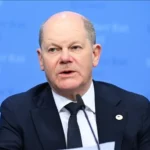On 17 October, the foreign ministers of 27 EU countries agreed to send a civilian mission to the Armenian-Azerbaijani border. The Council of the European Union decided to send up to 40 EU experts to monitor the Armenian side of the international border with Azerbaijan in order to analyze and report on the situation in the region. The decision aims to help restore peace and security in the area, to strengthen confidence-building measures and delimit the international border between the two countries. The monitoring mission will be temporary and will not last more than two months in total.
Notably, the Europeans did not delay in carrying out this decision, and the monitoring mission arrived in Yerevan on the same day. Not only that, but the Armenian Defense Minister Suren Papikyan met with the technical staff of the EU civilian mission. What is the reason for such a quick reaction of the EU on this issue? Azerbaijani political analyst Farhad Mammadov, Head of the South Caucasus Research Center, answered this and other questions in a talk with Minval.az.
According to him, the promptness of the European Union’s actions is due to the fact that it was agreed at the quadrilateral Azerbaijan-Armenia-European Union-France meeting in Prague that the process of signing a peace treaty, border delimitation and unblocking of communications, that is, the entire package, must be settled by the end of the year.
“Along with this, it is Armenia’s desire to demonstrate to its society the EU’s prompt response against the background of CSTO inaction. Although Russian Foreign Minister Sergey Lavrov said at a meeting with his Armenian counterpart Ararat Mirzoyan that it is because of Armenia, as the presiding CSTO member, that the Council is not convened to decide on the CSTO monitoring mission in this country,” he said.
Answering the question of whether the deployment of the EU mission on the border means a strengthening of this organization’s influence in the region and the gradual ousting of Russia from the region, Farhad Mammadov said: “This increases the mediation role of the European Union to a certain extent. We must realize that this is solely the result of Azerbaijan’s good will, as our country will cooperate with the EU civil mission in Armenia on issues of interest to Baku. This is first of all. Second, the mission is time-limited, i.e., it will take two months after the decision has been made. In this regard, we can say that for the first time in the history of the European Union, the EU has started to take the lead over Russia in the mediation activities between Azerbaijan and Armenia, both at the diplomatic level and on the ground.”
It is worth noting that along with the EU, Armenia has also submitted a similar request for the deployment of observers to the OSCE. Touching upon this issue, the political analyst said that this initiative would not be implemented. According to him, the Armenian side with the help of France tried to raise the issue at the UN Security Council and within OSCE, but it should be understood that there are countries in these organizations, which can veto the decision.
“Besides, Azerbaijan does not perceive the OSCE as a serious organization because of the inaction of the Minsk Group. Therefore, I do not expect any other monitoring missions to come to Armenia. Of course, observers from the CSTO may arrive, and Armenia can drag out the process during the remaining month and a half, but in any case, a decision will have to be made,” Farhad Mammadov stressed.
Farhad Mammadov also noted that recently there has been pressure on Azerbaijan from certain external forces.
“The countries and forces supporting Armenia wish to raise the issue of the Karabakh Armenians at this stage, along with the peace treaty, which is counterproductive. That is, on the one hand, Azerbaijan blocks the raising of this issue and focuses exclusively on the interstate agenda. Whereas, the external forces, for example, France, represented by Macron, raises the issue of the Karabakh Armenians. By the way, this may critically, negatively affect the whole process mediated by the European Union. And Azerbaijan has demonstrated that it is not going to put up with it,” he concluded.
Farid Teymurkhanli
Translated from Minval.az










